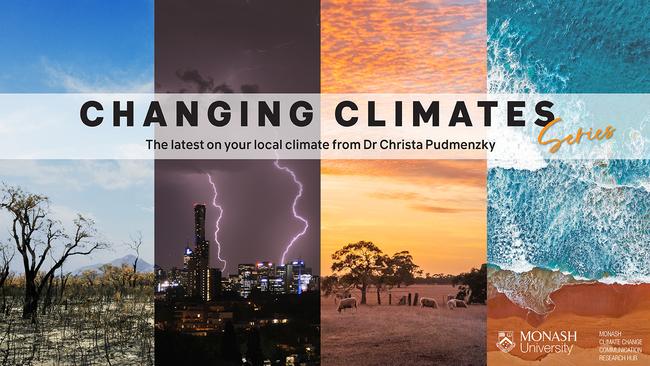Climate change causing nightmares for our sleep
Host of Logan's Changing Climates series, Dr Christa Pudmenzky, explains how summer temperatures are changing. Plus, how is climate change impacting the quality of our sleep?

HyperLocal
Don't miss out on the headlines from HyperLocal. Followed categories will be added to My News.
Since the industrial revolution, humans have relied on burning fossil fuels to create energy.
However, this practice traps excessive heat in our atmosphere, causing our climate to change.
Bureau of Meteorology data shows during summer, Logan now experiences around 59 nights above 20C - 21 more than it did in the early 1990s.

While specific trends vary from place to place, overall, our nights are warming faster than our days.
This has huge implications for our sleep patterns, and means we could be in for more restless nights when trying to get some shut eye over summer.
Aussies are all too familiar with the frustration that comes when the heat of the day drags on and the tossing and turning begins.
As our climate continues to warm, several regions will see overnight temperatures exceeding the ideal room temperature range for good quality sleep of 15.6C to 19.4C.
Warm nights impact the quality and duration of our sleep by inhibiting our ability to regulate body temperature.
Frequent waking and decreased rapid eye movement sleep are common features of a bad night's rest.
A recent study found a connection between climate change and sleep loss, projecting that without adequate emissions reduction, we may lose up to two weeks of sleep every year by the end of the century.
This has wide-ranging implications.
Dr Carmel Harrington, sleep expert and founder of Sleep Health Foundation described sleep as "our third pillar of health, and fundamental to our good physical and mental health."
Without it, we're vulnerable to a whole host of problems.
Impacts include reduced alertness, shortened attention span, slower reaction times, impaired memory, reduced concentration, moodiness and reduced work efficiency.
Our immune system also becomes compromised during bouts of insufficient sleep, which can impact our wellbeing and ability to fight disease.
Dr Harrington explained "acute sleep loss increases susceptibility to cold and flu infections".
When taking into account health system expenses and productivity losses, the total cost of inadequate sleep in Australia from 2019-20 was estimated at more than $75 billion.
Whilst not solely connected to heat-related sleep deprivation, this highlights the significant impact sleep loss can have on the economy.
And some will be more affected than others.
People from low socio economic areas are at greater risk as they are more likely to live in poorly insulated housing, and less likely to be able to afford air conditioning.
Solutions for better sleep
Quality sleep is a major marker of good health.
Benefits include improved memory and attention, lower stress levels, increased energy, repaired muscles, boosted mood and creativity, and better mental health.
Long-term, lowering our emissions as much as possible is a key way to protect the quality of our sleep.
Simple steps include taking more public transport, turning off appliances not in use, and eating less meat.
In the short-term, temporary solutions include using your air conditioner or investing in a fan, keeping your blinds or curtains closed during the heat of the day, and having a cool shower before bedtime.
With another month of summer ahead, these tips could be the difference between a night of discomfort and waking up refreshed and ready for the day.

Want more information on how your climate is changing? Check out the last article in this series.
Dr Christa Pudmenzky is a climate scientist at the University of Southern Queensland.
This column is part of a collaboration between Monash University and News Corp to deliver hyperlocal weather and climate information.


